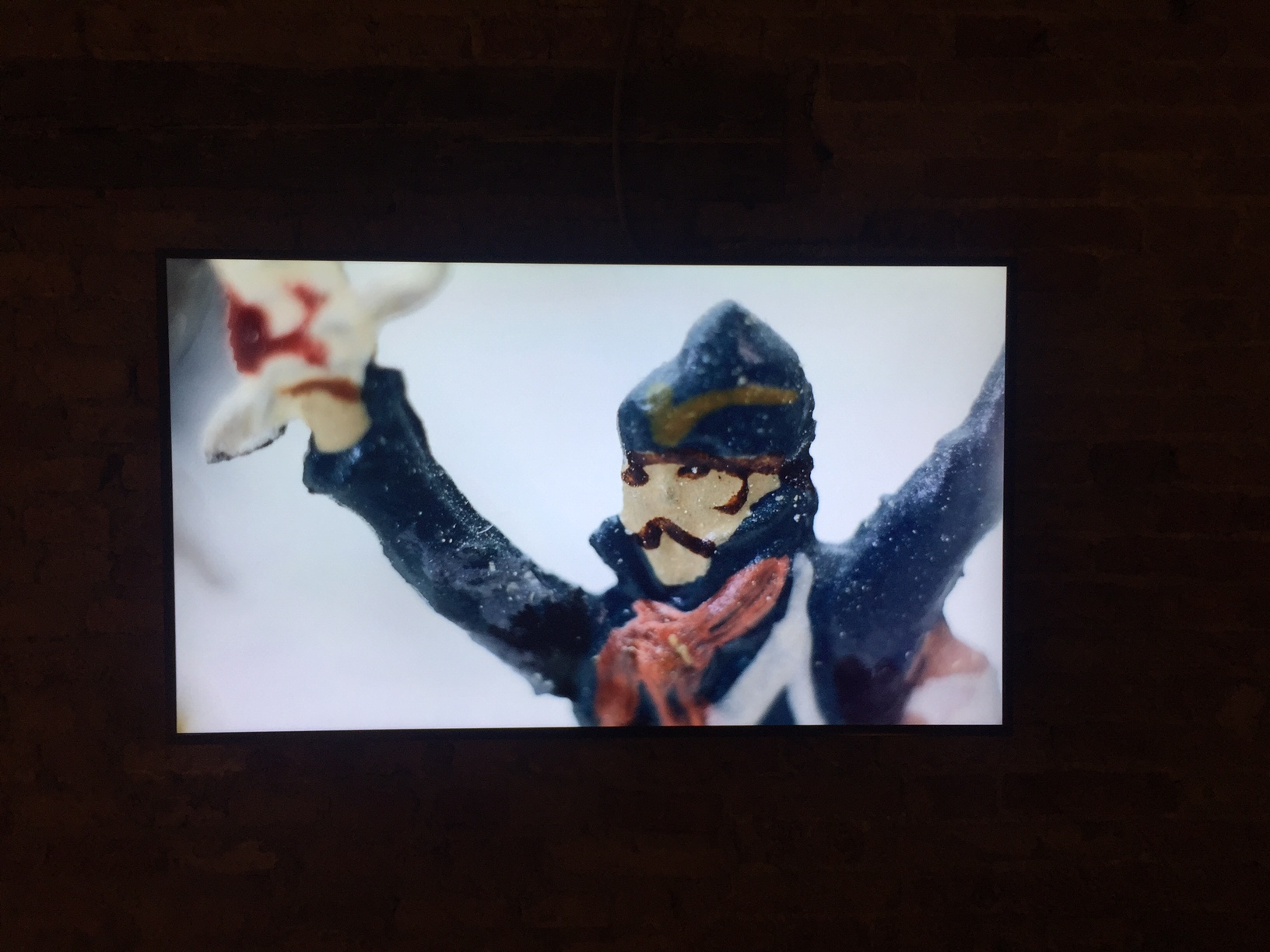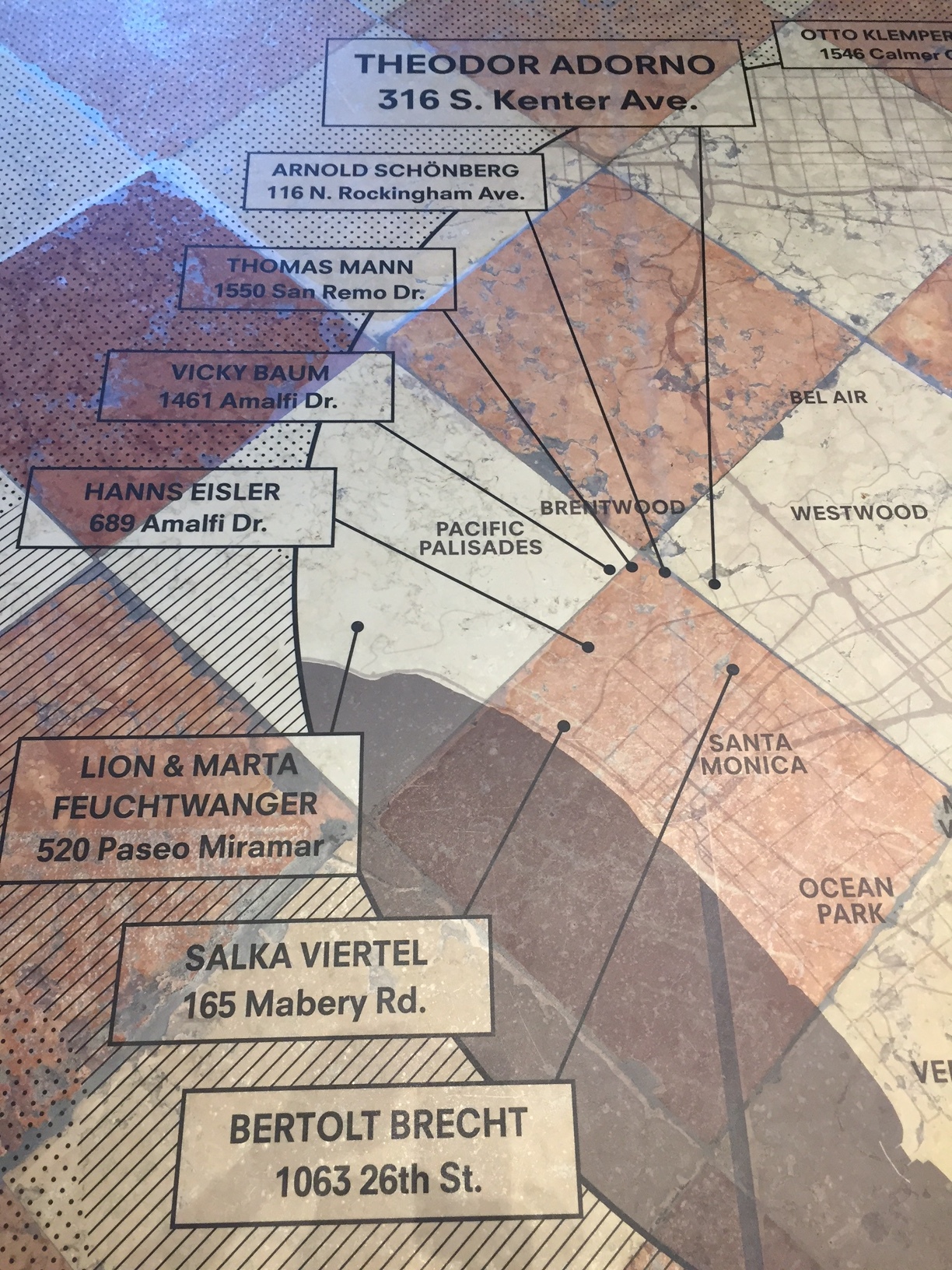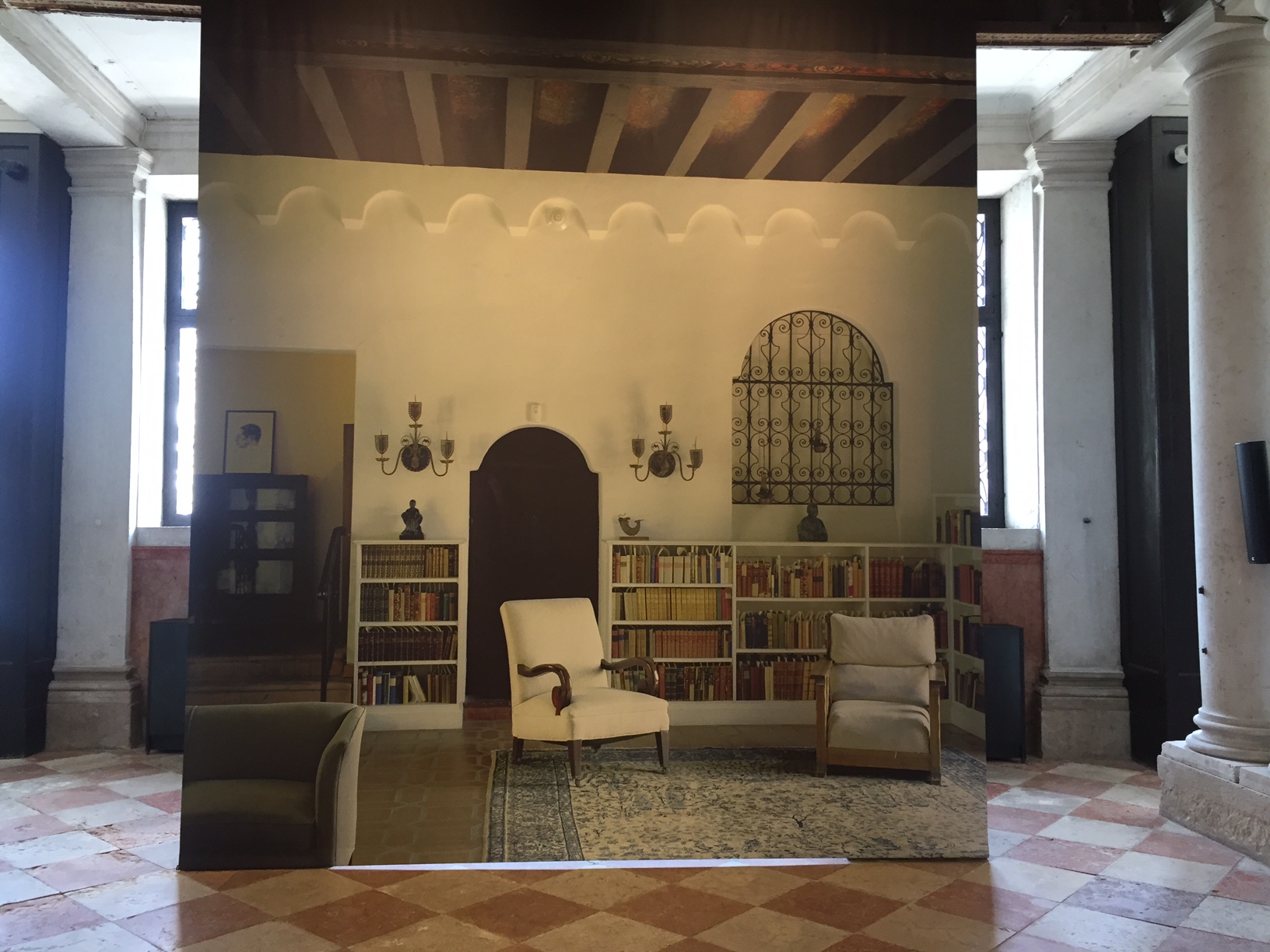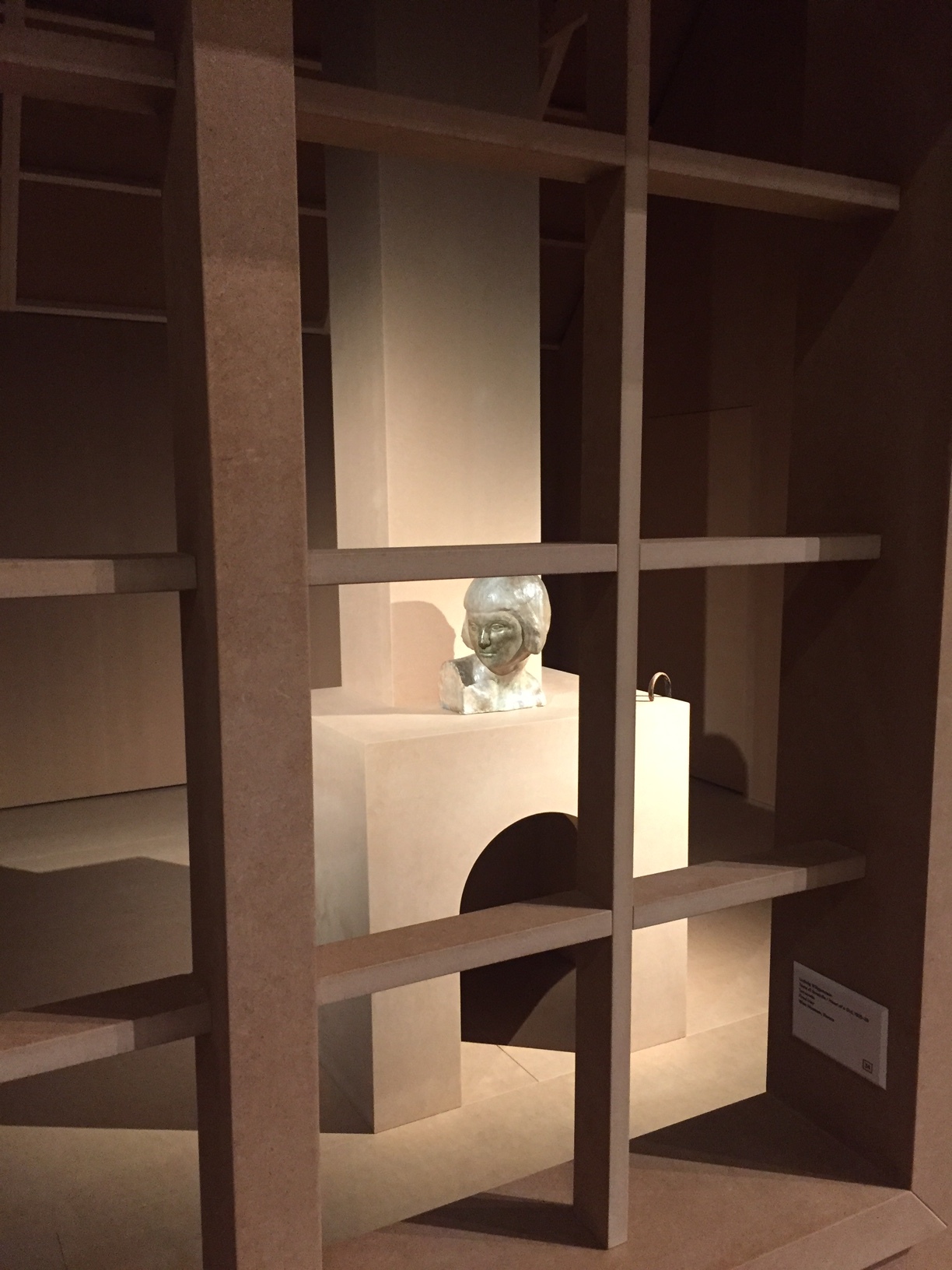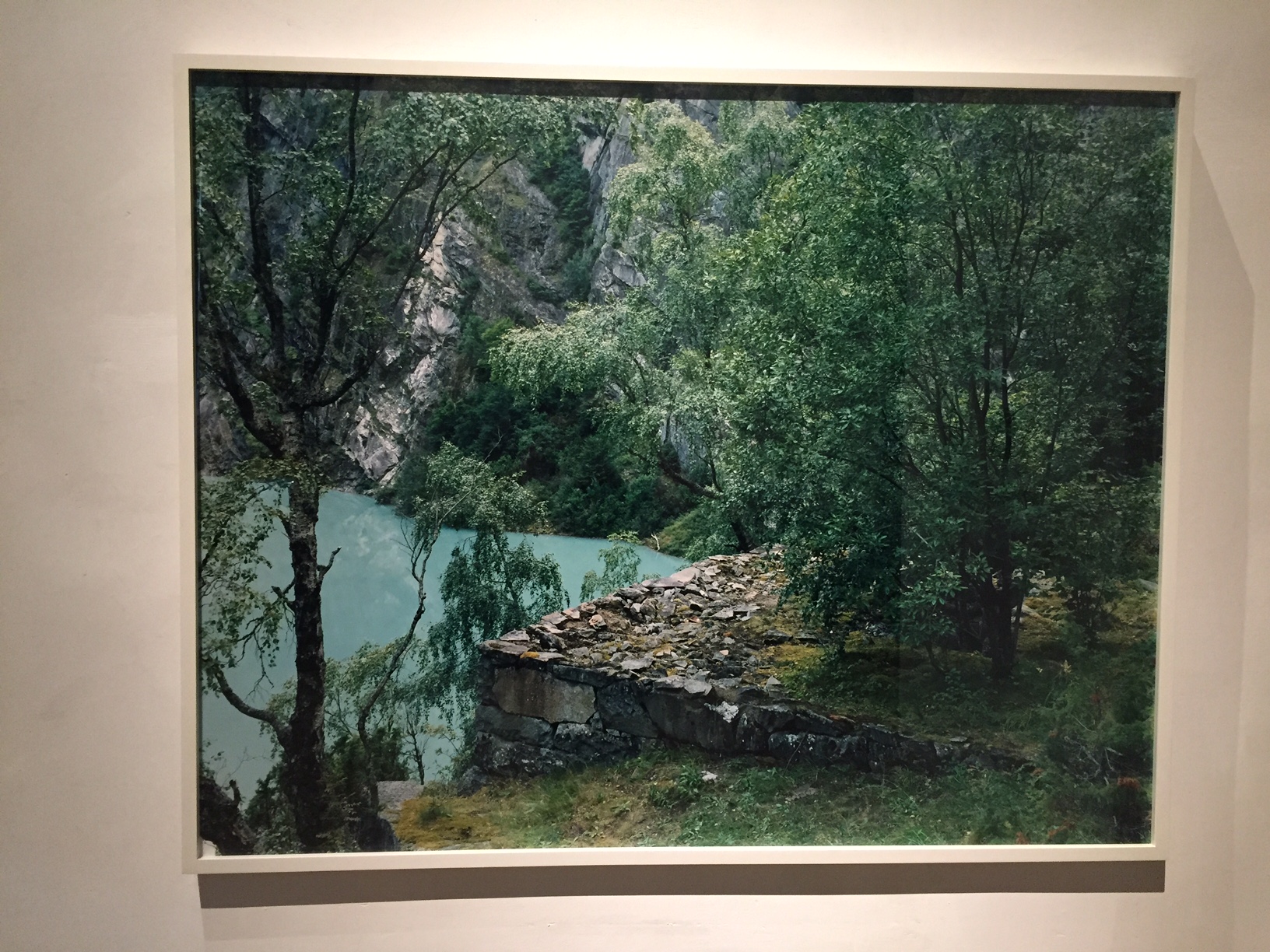At the Prada Foundation in Venice, an exhibition Machines À Penser has a title which is precisely the opposite of what one expects.
Inside the always impeccably curated space is a show about philosophers and their hideaway huts. It is a testament to the value of escaping to do one's work, to the perennial Virginia Woolf wish for a Room of One's Own or as Dieter Roelstraete, the curator put it, "the enduring infatuation with fantasies of flight and the architecture of retreat"
Heidegger, Wittgenstein and Adorno the focus of the show had 'huts' that are still vaguely extant.
Do not think of Easthampton or Santa Barbara. Instead think of remote Norway or Germany or even the Pacific Palisades as the biggest surprise for me was a huge blow up of the Villa Aurora at the entry which is right near me in Los Angeles and which was the getaway of Lionel Feuchtwanger and the nearby 'hut's of Salka Viertel, Hans Eisner, Thomas Mann (now saved by the German government), Arnold Schoenberg, Brecht, Alma Mahler
The Palisades can be a good if isolating place with precious little spontaneity but that's probably what the philosophers were seeking. Refuge. Thinking about the relationship of thought to environment is omnipresent in my life and often confused with happiness. No, the exhibition is not about contentment but rather the mental space to do one's work.
Again I was sorry that few women were included as surely women have longed to escape to think even perhaps more than men.
Rachel Cusk's new book, Kudos, which I've just begun, has a scathing section on an Italian contessa's writers retreat only thinly disguised as is most of her work. Here the writer's are hardly able to work and instead sit staring at the beautiful walls or tapestries in a kind of mad desperation. One packs up his bag and leaves on the second day, another wishes she could but her suitcases are too heavy.
The intellectuals in this exhibit are more bonded with their private retreats which depend on barebones cooking (women seem to be present for that part).
Contemporary artists were asked to contribute to this theme. (Again: very few women) Alexander Kluge's film Cold is the Chain of God was far and away the most charming, an animation which included Napoleon's armies suffering in the cold, lots of beautiful snow and great wit.
